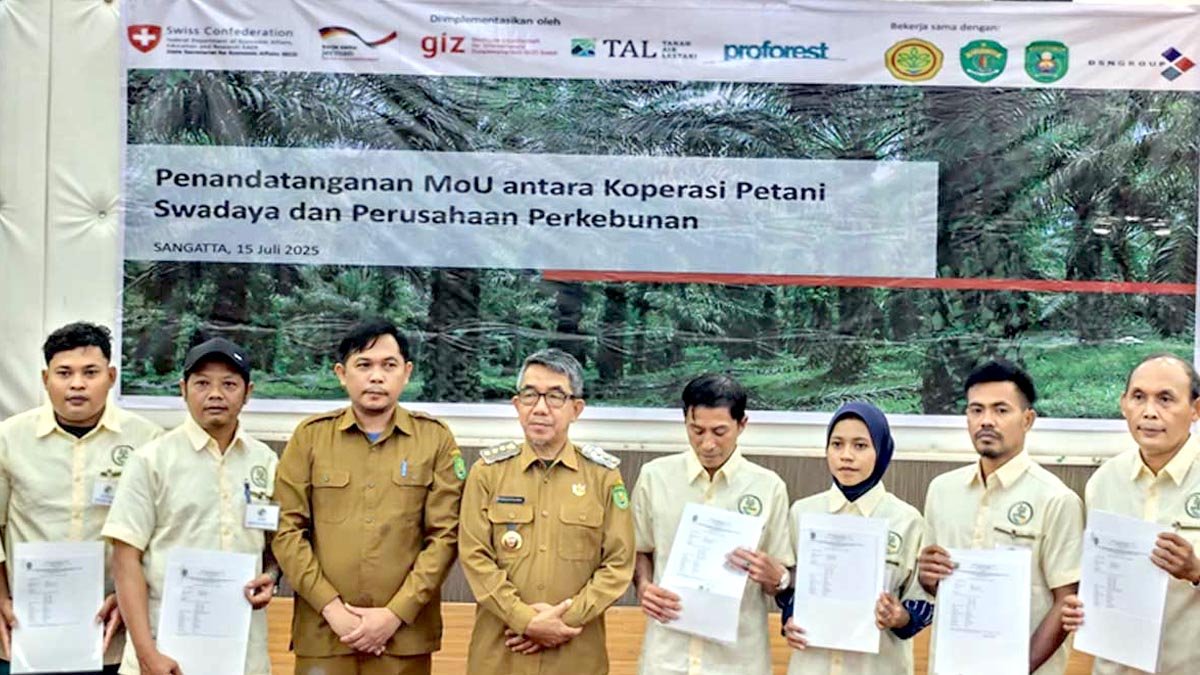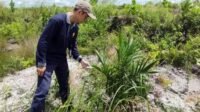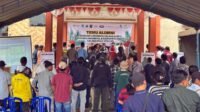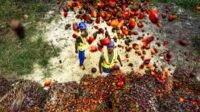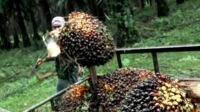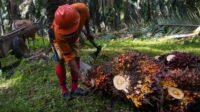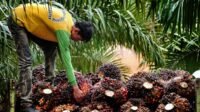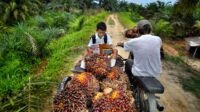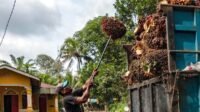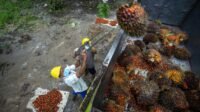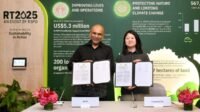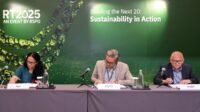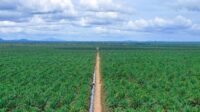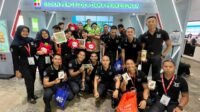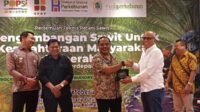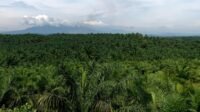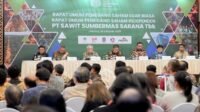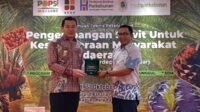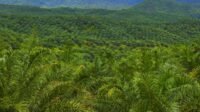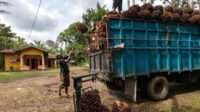PALMOILMAGAZINE, SANGATTA — Amid growing global scrutiny over sustainable and deforestation-free farming practices, a significant step has been taken by smallholder oil palm farmers in East Kutai Regency, East Kalimantan. A total of 614 farmers from 13 cooperatives have officially received Surat Tanda Daftar Budidaya (STDB) — cultivation registration certificates — covering 1,434 hectares of farmland. The official handover took place last Tuesday at the Royal Victoria Hotel, Sangatta, marking a key milestone in advancing legal, productive, and environmentally responsible smallholder palm oil governance.
Beyond being a mere legal formality, the STDB serves as a gateway for smallholders to integrate into standardized and sustainable plantation systems. The event also featured the signing of a memorandum of understanding between farmer cooperatives, the Plantation Office, the Cooperatives and SMEs Office, and corporate partners — reflecting a multi-stakeholder commitment to building a fair, inclusive, and globally competitive smallholder palm oil sector.
East Kutai Regent Ardiansyah Sulaiman, who personally attended the event, emphasized that the initiative represents the regional government’s commitment to strengthening farmers’ roles in the national palm oil value chain. “This partnership goes beyond business — it empowers farmers to be self-reliant and meet global standards such as ISPO and RSPO,” Ardiansyah said, as quoted by Palmoilmagazine.com from the East Kutai Regency Government on Thursday (July 17, 2025).
Also Read: IEU–CEPA Reaches Historic Breakthrough: Prabowo and EU Strengthen Strategic Partnership
He stressed that legal recognition through STDB is the first requirement for accessing financial programs like People’s Business Credit (KUR) and for pursuing sustainability certifications that open access to premium markets. “ISPO and RSPO are more than just labels. With certification, farmers can enjoy better prices, market security, and easier financing,” he added.
Idris, one of the newly registered farmers, shared how the STDB has sparked hope for his cooperative. “We used to struggle getting bank loans because our land wasn’t legally recognized. Now, with the STDB, we can apply for funding to maintain our plantations or buy tools. This is a huge help for us,” he said. He also mentioned that their cooperative has received training in environmentally friendly cultivation practices.
Iip Sumirat, Acting Head of East Kutai’s Plantation Office, noted that the STDB verification process was conducted with strict environmental checks. “We ensured there was no overlap with protected areas or production forests. The STDB now becomes a foundation for ISPO certification, sustainable farming training, and strengthening cooperative institutions,” he explained.
With 1,434 hectares of smallholder plantations now officially registered, the East Kutai Government is aiming for all smallholder oil palm farms to be fully mapped, verified, and supported in the coming years. This initiative is part of a broader regional development roadmap that places smallholder farmers at the center of low-emission and sustainable economic growth.
Besides enhancing farmer welfare and productivity, this move also contributes to Indonesia’s climate diplomacy on the global stage. A deforestation-free, legally recognized smallholder palm oil sector is viewed as a tangible contribution to sustainable global commodity supply chains.
“Legality and sustainability are the two key pillars of the future for East Kutai’s smallholder palm oil,” Ardiansyah affirmed. With 614 farmers now officially registered, the long journey toward inclusive, just, and sustainable palm oil production has officially begun — right from Sangatta. (P2)

